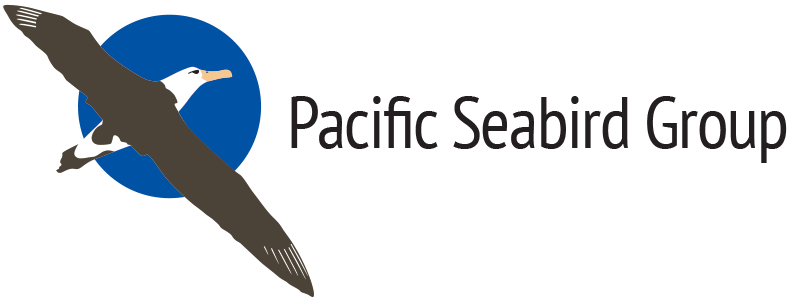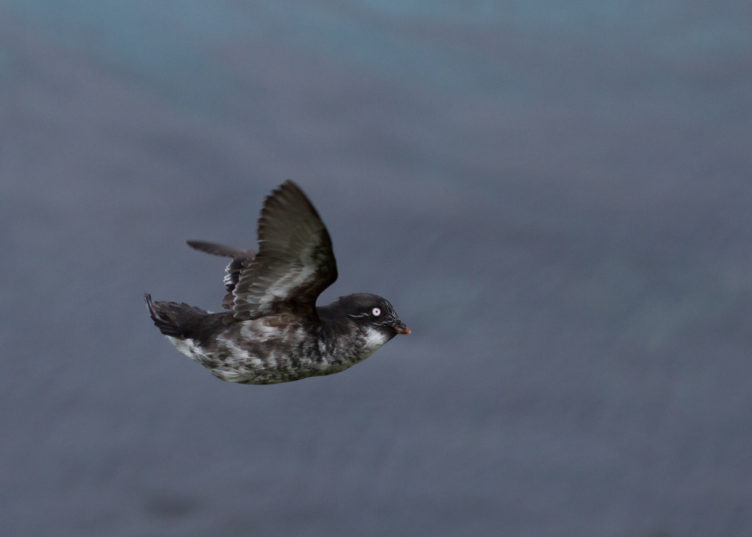Paid Technician: Seabird Technician with Archipelago Research and Conservation (HI)
Archipelago Research and Conservation LLC (ARC) is hiring a 9-month full-time seabird technician 9-month full time position to help with research and management activities for the recovery of native fauna in the Pacific, with a particular focus on the endangered Newell’s Shearwater (Puffinus newelli), Hawaiian Petrel (Pterodroma sandwichensis), and Band-rumped Storm-petrel (Oceanodroma castro) on the island of Kaua‘i. Deadline to apply: 3/17/2023.
Agency/Organization: Archipelago Research and Conservation (ARC)
Location: Hanape, Kaua‘i, HI
Website: https://archipelagoresearchandconservation.com/
Job Description: Archipelago Research and Conservation LLC (ARC) is a conservation consulting company
focused on research and management activities for the recovery of native fauna in the Pacific, with a particular focus on the endangered Newell’s Shearwater (Puffinus newelli), Hawaiian Petrel (Pterodroma sandwichensis), and Band-rumped Storm-petrel (Oceanodroma castro) on the island of Kaua‘i.
This is an exciting 9-month full time position offering competitive salary with benefits to join our team and make a real difference to the future of endangered birds, in some of the most beautiful and challenging locations in the world. Continuation of employment may be possible, dependent upon availability of funds, work performance, and operational considerations.
Infrastructure Monitoring and Minimization (IMMP) staff document avian interactions with human infrastructure, which is a critical step in the conservation of Hawaii’s endangered seabirds and waterbirds. This work will lead directly to immediate and real conservation action. The position reports to the ARC Senior Scientist and ARC Field Crew Leader – IMMP.
Primary Responsibilities:
- Using night vision, near–infrared illuminators and thermal binoculars to conduct surveys of nocturnal seabird (particularly Newell’s Shearwater and Hawaiian Petrel) passage rates at powerlines between seabird breeding colonies and the sea.
- Conduct diurnal waterbird surveys for passage rates at powerlines in wetland areas, using visual and auditory surveys.
- Deploy remote acoustic sensors across the island to quantify bird interactions with infrastructure. This requires hiking into remote locations.
- 4×4 driving, hiking, helicopter access to remote sites, helicopter sling loading of equipment, overnight and multi day camping.
- Working both in small teams and independently.
- Collect survey data using a voice recorder.
- Enter field data accurately and diligently onto tablets in the field, cross-reference data in the office and digitize data from night vision cameras.
- Assist with preparing field data summaries and reports.
- Perform other duties as assigned – which may include ecological monitoring of other species, public outreach and administration, and management and monitoring for seabirds at breeding colonies.
- Participate in assuring proper maintenance of project vehicles and care of project equipment. All work must be in accordance with ARC policies and guidelines
Qualifications:
Education: BSc Bachelor’s Degree in a relevant field from an accredited four (4) year college or university in Biological Sciences. Experience:
Required: One to three years of experience in terrestrial biological fieldwork. Demonstrated experience with one or more of the following: seabird-monitoring methods, take monitoring, auditory point counts, operating song meters or burrow cameras, or predator management near seabird colonies. Similar experience with other bird species or species of conservation concern may be considered. Demonstrated remote area experience critical.
Candidate must have the following abilities: Work independently in the field to monitor incidental wildlife take at human-built infrastructure with thermal and night vision goggles. Monitor selected endangered seabirds associated with electrical transmission, distribution infrastructure, and outdoor lighting. Concentrate for extended periods (up to four hours) using night-vision, binoculars, or scope under nocturnal conditions. Carry out irregular working hours, with most duties occurring in the evening after dark or very early in the morning (several hours before dawn). Use scientifically appropriate discretion and attention to detail in the field, often under difficult field conditions, including equipment management and repetitive tasks. Diligently collect data on field tablets strenuous physical exertion and heavy lifting. Hike all day on obscure trails with a heavy backpack unassisted including off-trail navigation. Carry out biological fieldwork in remote areas (including densely vegetated wet forest and arid canyons) with variable temperatures, accessed by 4-wheel drive, helicopter, or extended hiking. Travel regularly by helicopter. Drive a car or truck and use a variety of equipment for field studies (including generators and NIR lights). Must possess a valid driver’s license and maintain it throughout the duration of employment. Interact on a regular basis with land managers, cooperators, and members of the public. Follow and adhere to all safety and operational guidelines. Use Microsoft Office (incl. Word/Excel), Google Sheets, and other software programs to undertake field reporting and other administrative tasks. Communicate effectively both orally and in writing. Follow directions related to the protection of native fauna and flora. Be legally able to work in the U.S.A (applicants must be able to present a valid U.S. passport or evidence that they can legally work in the U.S.A.) – ARC will not apply for a visa on the applicant’s behalf.
Preferred: Strong interest and background training in conservation issues related to avian collisions with human infrastructure (power lines, wind farms, solar fields). Strong interest and background in seabird ecology (particularly forest breeding seabirds). Experience working with Hawaiian birds. Experience with use of Geographic Information System (GIS) software and databases, coding in R software, electrical experience, vehicle maintenance, creative problem solving. Familiarity with native Hawaiian flora and fauna, local conservation issues, and Kaua‘i.
Post Offer/Employment Conditions: Must possess Certification in First Aid/CPR (or be able to obtain the certificate following the training organized by ARC within two months from date of hire) and maintain throughout duration of employment. Must be able to complete basic helicopter safety course (organized by ARC) within two months from date of hire. ARC requires that all staff be fully vaccinated against COVID-19 and to provide a scan of a valid vaccination certificate.
Policy and/or Regulatory Requirements: As a condition of employment, employee will be subject to all applicable ARC policies and procedures. Violation of ARC’s policies and/or procedures or applicable State or Federal laws and/or regulations may lead to disciplinary action (including, but not limited to, possible termination of employment, etc.). This position description is a general guide. Other duties may be included, and the description is subject to change as needs dictate.
To apply: Please send a cover letter, CV, and contact information for three references to karimhanna@arckauai.com Applications will be reviewed as received and interviews will be conducted shortly after.
Application Deadline: 3/17/2023
Start Date: 4/3/2023
Contact: Karim Hanna (karimhanna@arckauai.com)






